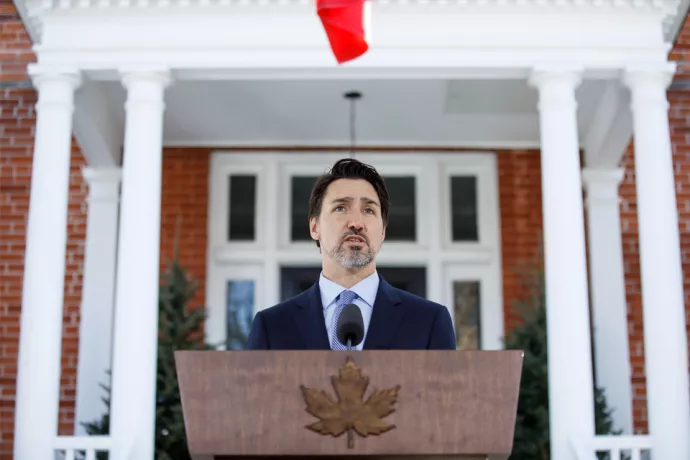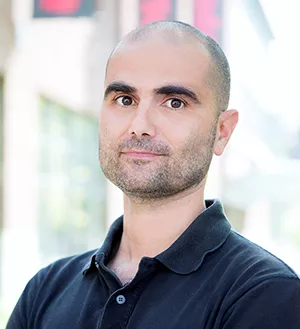
Policymakers face exceptionally tough choices during pandemic: UTM prof
As the COVID-19 pandemic continues with no clear end in sight, government leaders and policymakers are forced to make difficult decisions that push the limits of a free society.
Associate Professor Nicola Lacetera at UTM’s Department of Management says the agreed-upon way to slow down the spread of the virus and avoid overwhelming the healthcare system has been physical distancing. People have been told to stay home and go out at little as possible, remain at least two metres from one another when they are out, and all but essential businesses have been forced to close.
This has imposed a lot of restrictions, which is difficult in a democracy where freedom of movement is a basic tenet of living in a free society, Lacetera says.
Calling the measures a “strong limitation to our freedom,” he notes that the “higher-order objective is to save lives.” That’s a principle society holds high, yet there are costs to meeting that objective, and those might run contrary to other principles we also hold dear.

For example, there’s an increase in the level of surveillance of movement. Governments are tracking who is infected, where they’ve been, etc. And now some municipalities are actively patrolling parks and other public spaces, ensuring compliance with physical distancing orders and handing out fines to those who disobey the rules.
“It’s a very tough situation,” Lacetara says, noting it’s especially difficult to enforce stay-at-home measures and still have room for dissent and other views. It raises questions about whether these actions violate the constitution and if decisions are consistent with the principles of the legal system, he continues.
These are but some of the thorny issues government leaders must tackle as they push the limits of democracy.
“Setting policies in a way that’s compatible with the rest of the legal environment and what is socially acceptable is difficult,” Lacetera explains.
There are numerous other factors to consider. There are the psychological costs, Lacetera says, explaining humans are social animals and are unaccustomed to staying home. There are also the economic costs. The closures have led to a near economic shutdown and drastic increases to unemployment, bringing with it the need for government interventions. Referring to the safety net as costly but fair, Lacetera notes the money must come from somewhere.
“There are a bunch of decisions to work with and each are quite deep and very important,” he says.
Meanwhile, these policies are being enacted as the situation evolves and more information becomes available. At some point, Lacetera says, it may be more appropriate to introduce stronger restrictions.
Recent modelling released by the Ontario government suggests that may be the case. Modelling shows that had Ontario done nothing, there would have been 6,000 deaths by the end of April and 100,000 deaths through the course of the pandemic. Current measures have lowered those numbers, though, with modelling suggesting Ontario will see 1,600 deaths by the end of April and 15,000 over the course of the pandemic.
But the modelling also showed that stricter measures can further reduce the number of deaths to as low as 200 additional deaths by the end of April and 3,000 overall. Recently, the government has introduced further measures, closing public spaces and reducing the list of essential services.
It’s hard to know what the right answer is because not all the information is currently available, says Lacetera, explaining it takes time to get a clear sense of what the disease is and how it mutates – all crucial information.
“Inevitably government has to act with limited information and mistakes are likely,” he says.
